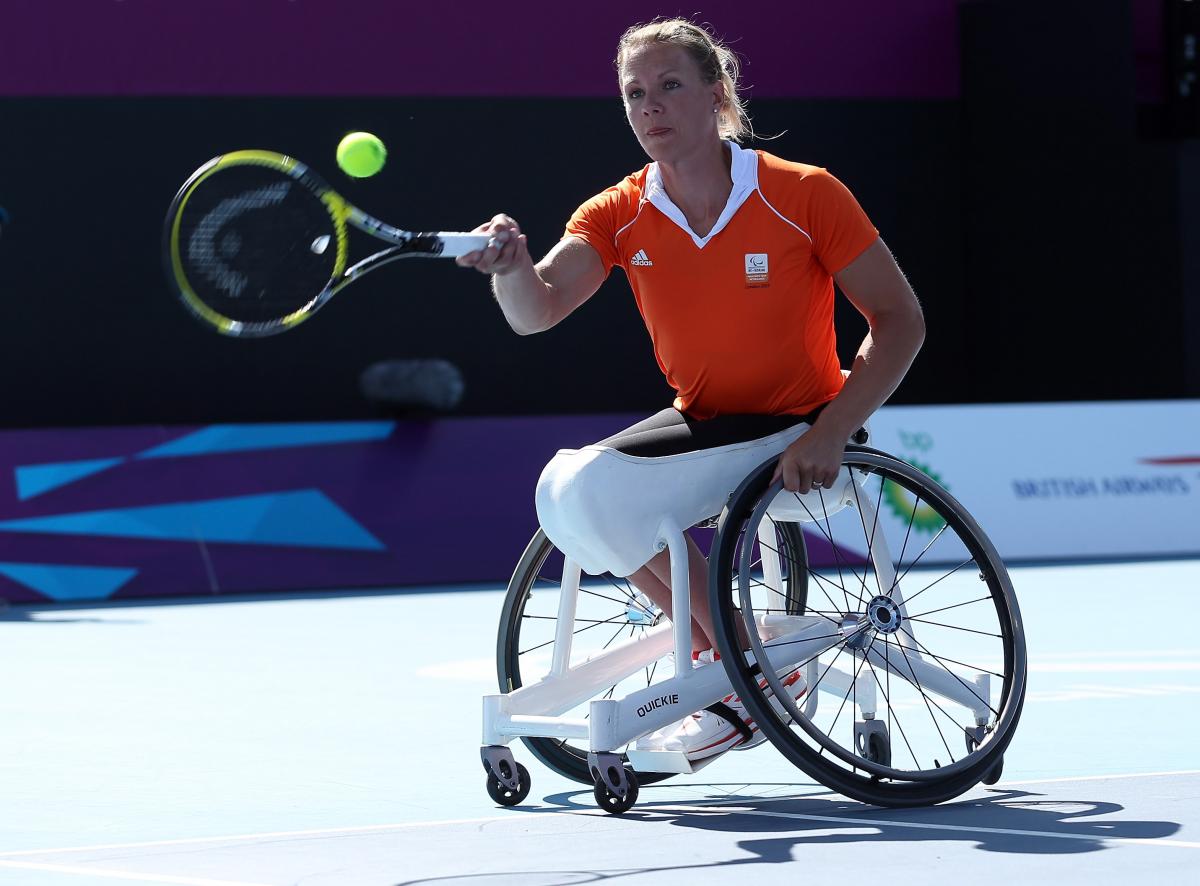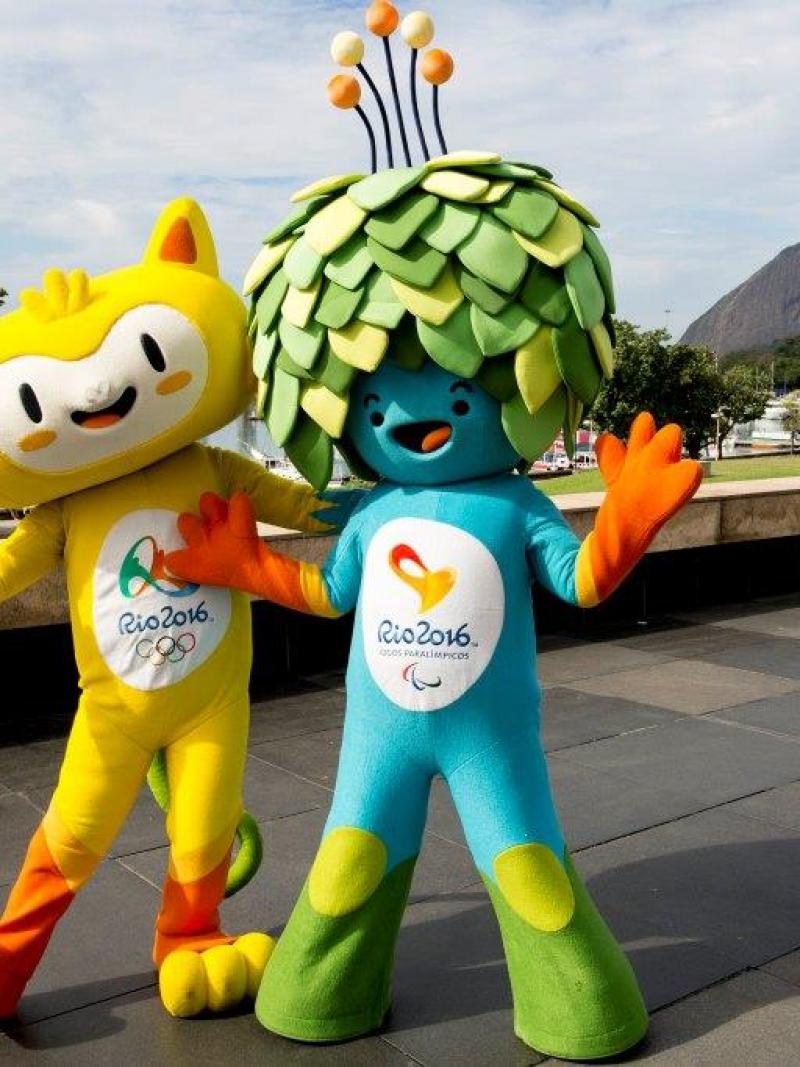Paralympic powerhouses look to extend dominance at Rio 2016
Dutch tennis players and Brazilian footballers among those who have stayed atop the podium – for a long time. 05 Sep 2015
The Netherlands' Esther Vergeer playing a forehand at the London 2012 Paralympic Games.
When Esther Vergeer received her gold medal at the London 2012 Paralympic Games, it consolidated one of the most impressive stories of sporting supremacy of all time. Since 1988, when wheelchair tennis was a demonstration sport at the Seoul Paralympic Games (it became a medal event at Barcelona 1992), only Dutchwomen have stood on top of the podium.
That might happen again at Rio 2016.
All seven women’s singles titles have gone to the Netherlands, four to Vergeer. It is the same story in the women’s doubles, with the Dutch taking home all six gold medals since the competition’s debut in 1992.
Vergeer retired in 2013, but the Dutch national anthem is still likely to be played when next year’s tournament comes to an end at the Olympic Tennis Centre. The silver and bronze medallists from London – Aniek Van Koot and Jiske Griffioen – currently occupy the top-two positions in the world rankings.
While the Olympic gold medal is the only major title Brazil’s famed football team has yet to win, the nation’s visually impaired footballers have suffered no such stage fright on the Paralympic Games stage.
Led by Jefinho, considered by many the best football 5-a-side players of all-time, and 2014 player of the year Ricardo Alves, Brazil have won all three Paralympic Games titles contested. They are the favourites for gold at Rio 2016, having won last year’s world championship. With their biggest rivals being Argentina, it should be an interesting tournament.
When it comes to sitting volleyball, China’s women are the queens of the court. They have won every gold medal since the women’s tournament was added to the Paralympic Games programme in 2004, winning all 17 games they have played.
The men’s competition is a tale of two major forces: Iran’s men have won five gold medals and two silvers since Seoul 1988, losing to Bosnia and Herzegovina in 2004 and 2012. All three teams have already qualified for Rio 2016.
China’s dominance of Olympic table tennis is well known, and it is no different in the Paralympic Games. In the women’s team events, they are four-time champions in the 4-5 (sitting) class and three-time gold medallists in the 6-10 (standing) class. In the women’s singles events, China has taken gold in the last four class five competitions and the last three class nine tournaments. But Asian dominance of the sport has been broken in class 10, where Poland’s Natalia Partyka has won the last three Paralympic titles and also competed in the Beijing 2008 and London 2012 Olympic Games.
Rio 2016 tickets will go on sale to Brazilian residents on 7 September, exactly one year before the opening ceremony. Overseas fans will be able to buy tickets from the authorised ticket reseller in their region.

 Facebook
Facebook
 Instagram
Instagram
 Twitter
Twitter
 Youtube
Youtube
 TikTok
TikTok
 Newsletter Subscribe
Newsletter Subscribe






